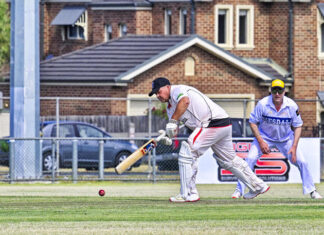By Cherie Donnellan
GEELONG will be a focus of a project to divert “perfectly eatable” food from going to waste and into disadvantaged homes, according to a Victorian welfare body.
Foodbank Victoria chief executive officer Ric Benjamin said State Government had identified Geelong as a centre to participate in a statewide “food mapping project”.
Foodbank and State Government would run the project to find food producers willing to donate products that failed to meet “Australian supermarkets’ high standards”, Mr Benjamin said.
The products could become “rescued food” to help feed disadvantaged households.
“Australian consumers are very fussy, so there is surplus food available that is currently being thrown out or destroyed,” Mr Benjamin said.
“These items are eatable but they just might be the wrong shape or size or have a small blemish, which producers can’t sell to supermarkets.”
Mr Benjamin said a recent Foodbank report, End Hunger in Australia, identified a “hidden epidemic” of people unable to afford three meals a day.
“With the high costs of rent, petrol, electricity and gas, people are unable to make ends meet.
“We’ve found out parents are skipping meals so they can pay for their children to attend a school excursion.”
Mr Benjamin said the food mapping project could help “starving families” but farmers were reluctant to donate produce.
“They believe people won’t buy the food in supermarkets because they’re giving it away for free to others.
“We believe it will actually expand their market because some of our clients who have never had some fresh fruit and vegetables will try it, like it and possibly buy it once they’re back on their feet.”
Mr Benjamin said the majority of people using Foodbank services and its related agencies like Geelong Food Relief centre were “only short-term clients”.
The Independent reported last month that Geelong Food Relief was recording increasing demand for help.
The agency’s Dave Manning said demand was rising among people at all income levels as they struggled to meet financial obligations.
“People we don’t really expect are coming in and need the service.”
Bid to ‘rescue’ food for needy
Digital Edition
Subscribe
Get an all ACCESS PASS to the News and your Digital Edition with an online subscription
Supersaints aim to shape final four
St Albans/Breakwater captain Damien Biemans is hoping his side can upset a few of the teams vying for GCA4 finals in the final three...








